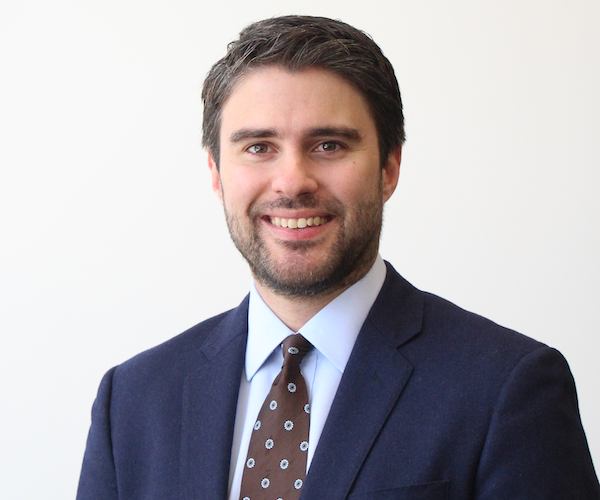Peters
Dr. Jonathan Peters

ABOUT
Dr. Jonathan Peters is the associate dean for academic affairs and the Carolyn McKenzie and Don E. Carter Chair for Excellence in Journalism. He also holds a faculty appointment in the School of Law. He teaches and researches media law and policy, and he is an affiliate scholar of the Center for Information, Technology, and Public Life at the University of North Carolina at Chapel Hill. He is currently serving a four-year term as a member of the Panel of Experts on Freedom of Peaceful Assembly and Association within the Organization for Security and Co-operation in Europe and its Office for Democratic Institutions and Human Rights, based in Vienna and Warsaw, respectively.
EDUCATION
Ph.D., Journalism, University of Missouri
J.D., Ohio State University
B.S., Journalism, Ohio University
RESEARCH INTERESTS AND ACTIVITIES
Dr. Peters researches media law and policy, and most of his work explores how technological and political forces affect media law frameworks and how media law principles evolve in response to changes in news and social media. To those ends, Dr. Peters has published articles in a variety of leading journals, including the Berkeley Technology Law Journal, the Harvard Law and Policy Review, the Vanderbilt Journal of Entertainment and Technology Law, the First Amendment Law Review, and the Federal Communications Law Journal. He is a coauthor of The Law of Public Communication, a textbook used at more than 100 colleges and universities in the United States and abroad.
In addition, Dr. Peters does international and comparative research in media law and policy. He is the author of encyclopedia articles about global free expression and European press regulation, and he has completed projects on media freedom for the Organization for Security and Co-operation in Europe, the Office for Democratic Institutions and Human Rights, the European Center for Not-for-Profit Law, and the International News Safety Institute. He has collaborated with civil society organizations worldwide to support the work of the U.N. Human Rights Committee, and he has been a consultant on media freedom for the U.N. Development Programme and the U.S. Agency for International Development.
TEACHING SPECIALTIES
Dr. Peters is a recipient of UGA's Russell Award for Excellence in Undergraduate Teaching, given each year to three faculty members across the university, and he has been recognized as the Department of Journalism's Teacher of the Year and as a UGA Online Learning Fellow. He mostly teaches media law, but he also has taught undergraduate courses in information gathering, public affairs reporting, feature writing, and media ethics, as well as graduate courses in freedom of expression, contemporary press freedom, and social media law. He regularly mentors Ph.D. and M.A. students, and he has directed summer study-away programs in Prague and Hawaii, in travel journalism. He has delivered guest lectures and public talks on journalism and media law at Harvard Law School, Columbia University, New York University, Michigan State University, the University of Minnesota, Ohio State University, the University of Missouri, Iowa State University, the University of Mississippi, Villanova University, and the University of North Carolina at Chapel Hill, among other places.
EXPERIENCE
Dr. Peters was the press freedom correspondent for the Columbia Journalism Review for six years, and he has written about legal issues for Vanity Fair, Esquire, The Atlantic, Slate, Wired, NBC, CNN, and Nieman Reports. He also has written about the NHL for Sports Illustrated, and he has blogged about the First Amendment for the Harvard Law Review and the Harvard Law & Policy Review. He is a frequent commentator on media law for The New York Times, The Washington Post, The Wall Street Journal, and various television and radio networks. In addition, his work has been noted by John Oliver’s Last Week Tonight and Jon Stewart’s The Daily Show.
Dr. Peters has authored or contributed to numerous amicus briefs in First Amendment cases, and he has served as a volunteer First Amendment lawyer for the Student Press Law Center and the ACLU. He has testified in litigation as an expert witness on media law, and he has conducted legal seminars for dozens of news organizations, such as the radio program This American Life and the podcast Serial. He is the author of a report commissioned by Columbia University that explores the legal and ethical implications of reporting on stolen materials, focusing on the 2016 presidential election. He also served on a research team that conducted the after-action review of a major American city’s response to the 2020 protests following George Floyd’s murder.
Dr. Peters is active in a number of nonprofit organizations. He serves on the board of directors of the Georgia First Amendment Foundation, where he has held the positions of president, vice-president, treasurer, and secretary. He also served as head of the Law & Policy Division of the Association for Education in Journalism and Mass Communication, after serving as vice-head, research chair, newsletter chair, teaching chair, and professional freedom/responsibility chair, for a total of 10 years in division leadership. He served nearly 10 years as First Amendment Chair of the Civil Rights Litigation Committee of the American Bar Association and 5 years as a member of the Freedom of Information Committee of the Society of Professional Journalists.
Dr. Peters is the third holder of the Carolyn McKenzie and Don E. Carter Chair for Excellence in Journalism, which supports teaching, research, and public service activities that emphasize the journalistic values essential to a democratic society—values that are reflected in his work. Before coming to UGA, he was a faculty member at the University of Kansas and the University of Dayton.

In the News
- The newspaper ad that changed everything, via CNN
- When a journalist is arrested covering a protest, what should the news outlet do? via Columbia Journalism Review
- Trump wants to " look into " free press, via Politico
- Q: Could U.S. prosecute reporters for classified scoops? A: Maybe, via NPR
- The ethics of leaks, via Nieman Reports